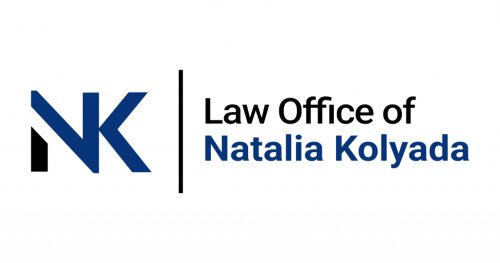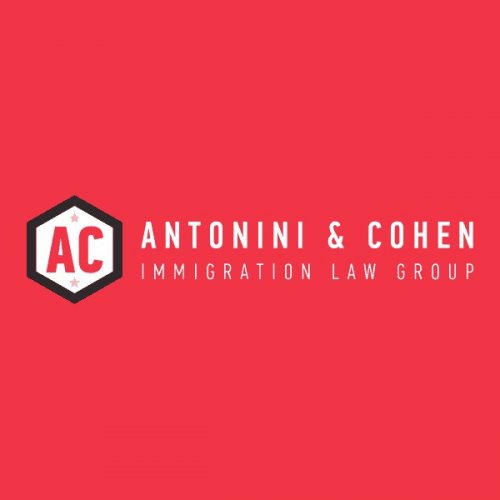Best Citizenship Lawyers in Georgia
Share your needs with us, get contacted by law firms.
Free. Takes 2 min.
Or refine your search by selecting a city:
List of the best lawyers in Georgia, United States
About Citizenship Law in Georgia, United States
Citizenship in Georgia, United States refers to the legal status of being a recognized member of the United States with all associated rights and responsibilities. Georgia follows federal United States citizenship laws, which outline how individuals can become U.S. citizens, either by birth, through parents, or by a process known as naturalization. While state laws do not grant citizenship, state agencies and courts play a role in verifying and supporting residents during the process. Understanding the intersection of federal immigration policies, state-level procedures, and local documentation requirements is essential for residents seeking to establish, confirm, or change their citizenship status in Georgia.
Why You May Need a Lawyer
People commonly need legal help with citizenship matters in Georgia due to the complexity and high importance of the process. Here are several situations where legal consultation is beneficial:
- Navigating the naturalization process, including form preparation and interview preparation
- Assisting with documentation for U.S. citizenship based on birth or parentage
- Addressing issues of dual citizenship or renunciation
- Overcoming challenges related to criminal background or previous immigration violations
- Appealing denial of citizenship applications or responding to government requests for evidence
- Filing applications for children or dependents
- Locating and interpreting supporting documentation required by the State of Georgia, such as vital records or court orders
A qualified citizenship attorney can help avoid costly mistakes, provide clarity on requirements, and represent you in interactions with federal and state agencies.
Local Laws Overview
While U.S. citizenship law is primarily governed by federal statutes (such as the Immigration and Nationality Act), Georgia plays a role through its local agencies and institutions. Important aspects relevant to citizenship in Georgia include:
- Verification of identity and legal status for state services, such as driver's licenses, professional licenses, or voting registration, often requiring proof of citizenship
- Use of state and county vital records for citizenship applications, such as birth and marriage certificates
- State and municipal programs that require proof of U.S. citizenship for eligibility, including public benefits
- Legal support through local courts for name changes or other status adjustments related to citizenship
- Programs run by local nonprofits and advocacy groups to assist immigrants and aspiring citizens
It is important to recognize that while Georgia applies federal rules for citizenship, understanding how local documentation and processes function can impact your journey.
Frequently Asked Questions
How do I become a U.S. citizen if I am living in Georgia?
Most people apply for citizenship through the naturalization process, which involves submitting an application to U.S. Citizenship and Immigration Services, passing background checks, attending an interview, and passing language and civics tests. Residents of Georgia typically file with their local or regional USCIS office.
Can I get legal assistance with my citizenship application in Georgia?
Yes, there are many law firms, nonprofit organizations, and accredited representatives who provide assistance with citizenship matters in Georgia.
Where do I file my naturalization paperwork if I live in Georgia?
Applications are filed with U.S. Citizenship and Immigration Services. You may also need to attend interviews or biometric appointments at local USCIS offices in Georgia, such as those in Atlanta.
What documents do I need to prove my citizenship for Georgia state services?
Commonly required documents include a U.S. passport, birth certificate, certificate of naturalization, or certificate of citizenship. Some state entities may have specific documentation requirements.
What happens if my citizenship application is denied in Georgia?
You have the right to appeal a denial. Consulting an immigration attorney is highly recommended to address the reasons for denial and prepare an effective response.
Can I hold dual citizenship in Georgia?
The United States allows dual citizenship but does not encourage it. Some other countries restrict or do not allow dual citizenship, so you should consult with a legal professional about your specific situation.
How do I replace a lost certificate of citizenship or naturalization in Georgia?
You will need to file an application with USCIS (Form N-565) and provide proof of your status and the lost or damaged certificate.
Are there any local organizations in Georgia that help with the citizenship process?
Many nonprofits in Georgia provide citizenship classes, legal clinics, and low-cost assistance to eligible residents. Examples include the Latin American Association and New American Pathways.
What are the English and civics requirements for citizenship?
Applicants generally must demonstrate the ability to read, write, and speak basic English, and must pass a test on U.S. history and government during the naturalization interview.
Can criminal history affect my ability to become a U.S. citizen in Georgia?
Yes, certain criminal convictions can make you ineligible for citizenship. An attorney can assess your record and provide advice on your eligibility and possible waivers.
Additional Resources
Several agencies and organizations offer resources for individuals seeking help with citizenship in Georgia:
- U.S. Citizenship and Immigration Services (USCIS) - for official forms, instructions, and application status
- Georgia Department of Driver Services - for information on documentation needed for licenses and IDs
- Georgia Secretary of State - for voter eligibility and registration based on citizenship status
- Local legal aid organizations such as Georgia Legal Services Program
- Nonprofits offering integration and legal help, including the Latin American Association, Asian Americans Advancing Justice, and Catholic Charities Atlanta
Consider reaching out to these organizations for information, guidance, and possible legal assistance.
Next Steps
If you need legal assistance with citizenship in Georgia, start by reviewing your eligibility and gathering all necessary documentation. Research and contact qualified immigration attorneys or local legal aid organizations. Prepare a list of questions and bring any relevant documents to your consultation. If your case involves complications such as a denial, criminal record, or unusual circumstances, seek specialized legal counsel as early as possible to avoid delays or permanent issues. Taking prompt and informed action is key to successfully managing your citizenship process in Georgia.
Lawzana helps you find the best lawyers and law firms in Georgia through a curated and pre-screened list of qualified legal professionals. Our platform offers rankings and detailed profiles of attorneys and law firms, allowing you to compare based on practice areas, including Citizenship, experience, and client feedback.
Each profile includes a description of the firm's areas of practice, client reviews, team members and partners, year of establishment, spoken languages, office locations, contact information, social media presence, and any published articles or resources. Most firms on our platform speak English and are experienced in both local and international legal matters.
Get a quote from top-rated law firms in Georgia, United States — quickly, securely, and without unnecessary hassle.
Disclaimer:
The information provided on this page is for general informational purposes only and does not constitute legal advice. While we strive to ensure the accuracy and relevance of the content, legal information may change over time, and interpretations of the law can vary. You should always consult with a qualified legal professional for advice specific to your situation.
We disclaim all liability for actions taken or not taken based on the content of this page. If you believe any information is incorrect or outdated, please contact us, and we will review and update it where appropriate.
Browse citizenship law firms by city in Georgia
Refine your search by selecting a city.
















